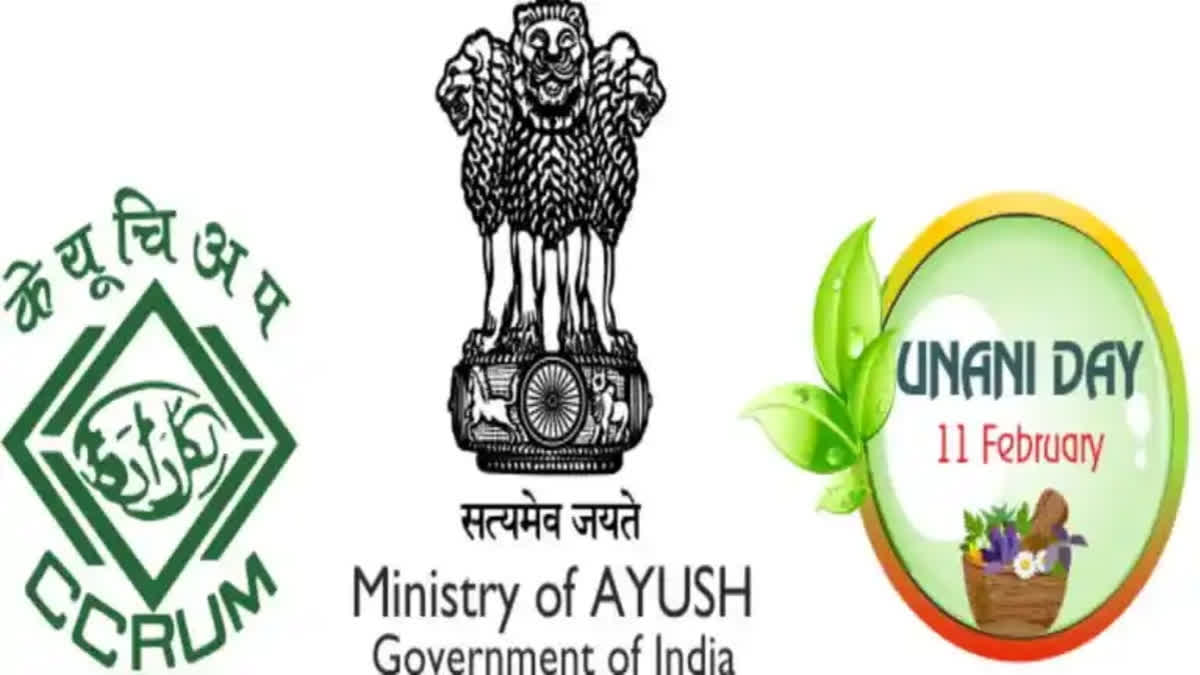Hyderabad: World Unani Day, observed annually on February 11, pays tribute to the birth anniversary of Hakim Ajmal Khan, a pivotal figure in the realm of Unani medicine. Born on February 11, 1868, Hakim Ajmal Khan was not only an eminent Unani physician but also an educator and the catalyst behind the modernization of the Unani system of medicine in India.
Understanding Unani Medicine:Unani medicine, also known as Unani Tibb, Arabian medicine, or Islamic medicine, traces its roots to ancient Greek philosophy. In Arabic, "Unani" translates to "Greek," signifying its profound connection to the principles of ancient Greek medicine. This holistic healing philosophy revolves around the interplay of four fundamental elements - Fire, Water, Air, and Earth - corresponding to four humours: Phlegm, Black bile, Blood, and Yellow bile, respectively.
History:The history of World Unani Day can be traced back to the year 2016 when the Ministry of AYUSH, Government of India, announced its celebration. The inaugural observance took place in 2017 at the Central Research Institute of Unani Medicine in Hyderabad. The significance of this day lies in honoring Hakim Ajmal Khan's role in revitalizing and modernizing the Unani system in India, with its origins dating back to the 10th century.
Announcement of 'World Unani Medical Science Day' Awards 2024: The National President of All India Unani Tibi Congress, Prof. Mushtaq Ahmed, extended congratulations while revealing the names of Unani doctors deserving recognition for their valuable services. The awards, based on the recommendations of the 'World Unani Medicine Science Day' Award Committee, aim to honour individuals for their meritorious contributions to the field of Unani medicine.
The prestigious Dr. AU Azmi Lifetime Achievement Award is set to be bestowed upon Professor Muhammad Akhtar Siddiqui. Alongside him, other notable awardees include Professor Dr. Syed Muhammad Arif Zaidi, Professor Muhammad Ahsan Farooqui, Dr. Muhammad Mohsin, Hakeem MA Rajiq Qureshi Qasmi, Dr. Younis Iftikhar Munshi, Dr. Neelam Quddusi, Dr. Abdullah, Prof. Abdul Nasir Ansari, Dr. Naseem Akhtar Khan, Dr. Uzma Bano, Dr. Pawan Bose, Prof. Nafasat Ali Ansari, Dr. Nazish Ehtasham Azmi, Dr. Osama Akram, Dr. Minhajuddin Khan, Dr. Niaz Ahmed Azmi, Dr. Shafiq Ahmed, and Prof. Alimuddin Qamari. These individuals stand out for their noteworthy contributions to the Unani medical community.
Fundamentals of Unani System of Medicine: In the Unani system of medicine, the human body is viewed through the lens of seven natural principles known as "Umure Tabiya." These fundamental components are deemed responsible for the existence of the human body and play a crucial role in maintaining health. The seven principles encompass Elements (Arkan Or Anasir), Temperament (Mizaj), Humours (Akhlat), Organs (Aza), Pneuma or vital spirit (Arwah), Faculties of power (Quwa), and Function (Al-Af’al). Together, they form the basis of the Unani approach to health and well-being.
Unani's Holistic Approach: One distinctive feature of the Unani system is its emphasis on prevention and health promotion over cure. This holistic approach recognizes the profound influence of surroundings and ecological conditions on the health of individuals. Baqa–e-sehath (preservation of health) is a core concept, focusing on balancing essential factors to sustain good health. The Unani system believes that maintaining a balanced relationship between these factors keeps the humours and temperament on the right track, promoting overall well-being.
Diagnosis in Unani(Nabz, Baul, and Baraz): Diagnosing diseases in the Unani system revolves around three critical aspects: Nabz (pulse), examination of baul (urine), and Baraz (stool). These elements, coupled with an understanding of the patient's surroundings and ecological conditions, form the basis for determining an individual's health. Unani medicine places a significant emphasis on causes for disease prevention, considering the six essential factors of health (Asbabe-Sittah Zaruriah), and evaluating the Mizaj (temperament) of the patient.
